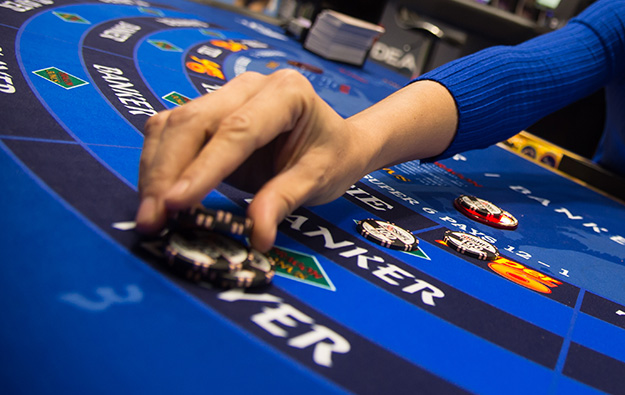Casinos, make 85pct of execs locals by 2020: Macau govt
Sep 08, 2016 Newsdesk Latest News, Macau, Top of the deck

The Macau government wants to increase the share of locals working in middle- and upper-level management positions in the city’s casino industry to 85 percent by 2020. The goal is stated in the finalised version of the city’s first Five-Year Development Plan, unveiled on Thursday.
The document stated that the proportion of Macau locals in either middle-management posts or above in the city’s casino industry stood at 81.9 percent last year.
Imported labour accounted for approximately 28 percent of Macau’s overall population in the second quarter of 2016, show data from the city’s Statistics and Census Service.
The five-year plan additionally pledged the current Macau administration to maintain its policy of allowing only locals to be hired as casino card dealers. It also included a target of reducing to 76 percent by 2020 the proportion of Macau gaming workers that are without higher education, from the 80 percent recorded in 2015.
Macau’s Five-Year Development Plan includes social and economic aspirations for the city, and covers the period 2016 to 2020. This is separate from China’s national 13th Five-Year Plan, which includes general references to the diversification of Macau’s economy.
The local five-year plan has little in the way of specific policy aims for the gaming industry. It does not set goals for casino gross gaming revenue (GGR) growth.
“We do not aim to expand the size of the gaming industry, but target instead for it to achieve higher intrinsic quality,” stated the document.
“We have concluded that gaming revenues are not that low and we hope that the double-digit negative growth can be turned into a positive growth,” Macau’s chief executive, Fernando Chui Sai On, said during a Thursday press conference to present the final version of the five-year plan, quoted by public broadcaster Radio Macau.
In July, Macau casino GGR fell by 4.5 percent judged year-on-year. It was part of a trend of a sequential monthly narrowing in contraction that began in the second quarter of 2016.
In August, the monthly tally rose 1.1 percent year-on-year, marking the first time in 27 months that such revenue had not contracted, judged year-on-year.
The five-year plan also stated that the Macau government would “strengthen” regulations covering the gaming industry. That would be based on the findings of the Macau government’s “mid-term” review report of the local casino industry, disclosed in May.
The findings included in the mid-term review report – commissioned by the Macau government from the University of Macau’s Institute for the Study of Commercial Gaming – were mostly quantitative. But the document did include criticism regarding rules for the junket sector.
One goal that is spelled out in the five-year plan relates to non-gaming revenue at Macau casino resorts as a proportion of all revenue they generate. The target is that non-gaming – including hospitality, retailing, food and beverage, and entertainment – should account on average market-wide for at least 9 percent of all such revenue by 2020, from what the government estimates was 6.6 percent in 2014.
This target was already included in the five-year plan’s draft version, revealed earlier this year.
The final version of the five-year plan reiterated the need for Macau to adhere to the cap on the number of new live dealer gaming tables allowed in Macau’s casinos.
Related articles
-
 Gaming taxes 82pct of Macau govt rev in...
Gaming taxes 82pct of Macau govt rev in...Nov 25, 2024
-
 3Q Macau gaming worker median monthly...
3Q Macau gaming worker median monthly...Nov 08, 2024
More news
-
 Primorye casinos draw 365k visitors in...
Primorye casinos draw 365k visitors in...Nov 25, 2024
-
 Macau 5-star room rate down 4pct y-o-y...
Macau 5-star room rate down 4pct y-o-y...Nov 25, 2024
Latest News
Nov 25, 2024
The Primorye gambling zone, in the Russian Far East, welcomed close to 365,500 visitors in the first six months of 2024, according to local authorities. The figure was up by around 50,000 people...Sign up to our FREE Newsletter
 (Click here for more)
(Click here for more)
Pick of the Day
US$829.3 million
Fiscal revenue from taxes on gaming collected in October by the Macau government
Most Popular
 Wynn Al Marjan building structure 55pct complete: promoter November 22, 2024
Wynn Al Marjan building structure 55pct complete: promoter November 22, 2024  David Chow steps in for mother as Macau Legend director December 10, 2018
David Chow steps in for mother as Macau Legend director December 10, 2018  GKL provides its new table game ‘BROG’ to Landing Casino November 22, 2024
GKL provides its new table game ‘BROG’ to Landing Casino November 22, 2024  Star Entertainment clinches US$130mln loan facility November 21, 2024
Star Entertainment clinches US$130mln loan facility November 21, 2024








